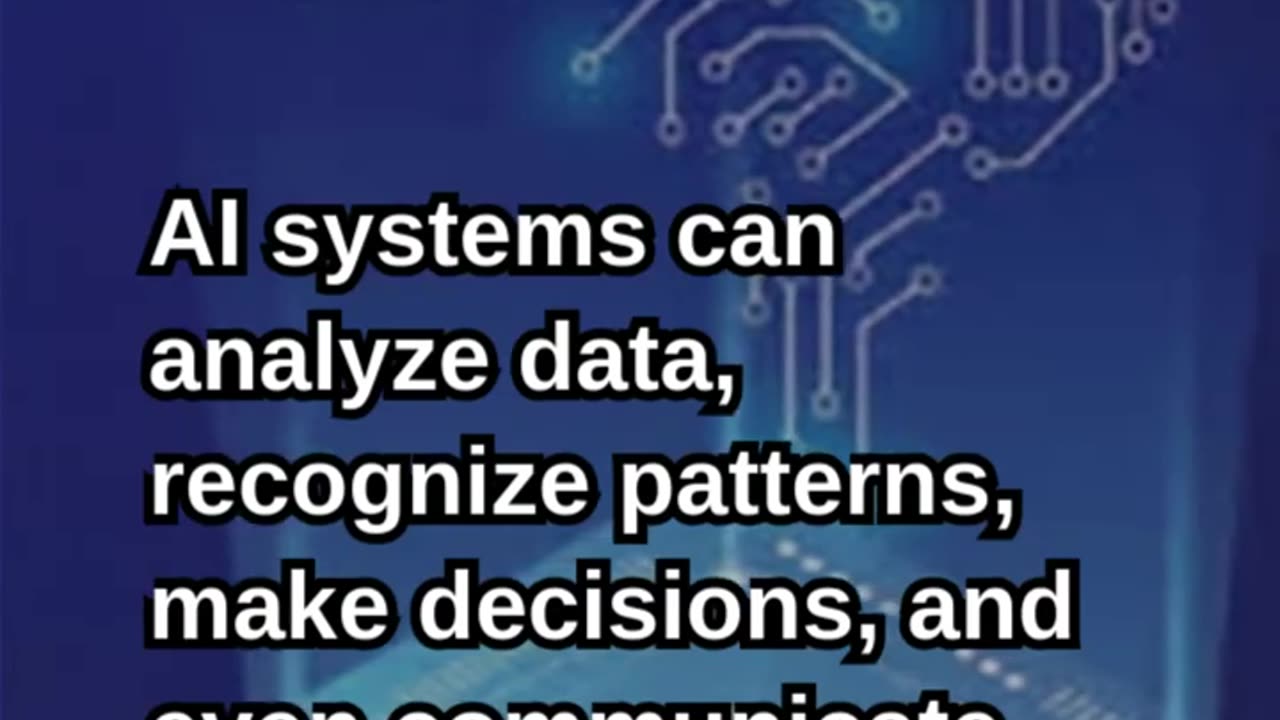Premium Only Content

Understanding Artificial Intelligence in Today’s
Artificial Intelligence (AI) is a branch of computer science that focuses on creating machines and software capable of performing tasks that typically require human intelligence. These tasks include reasoning, learning, problem-solving, perception, language understanding, and even decision-making.
Go here to find out what tools we are using each day to be successful in our business.
https://versaaihub.com/resources/
https://versaaihub.com/media-and-entertainment/
https://www.instagram.com/versaaihub/
https://x.com/VersaAIHub
https://www.youtube.com/@VideoProgressions
https://www.youtube.com/@MetaDiskFinancial
Over the past decade, AI has transformed from a theoretical concept into a practical technology that powers many aspects of modern life, from voice assistants and recommendation systems to autonomous vehicles and medical diagnostics.
At its core, AI relies on algorithms that can process large amounts of data, recognize patterns, and make predictions or decisions based on that data. Machine learning, a subset of AI, allows systems to improve their performance over time without being explicitly programmed. Deep learning, an advanced form of machine learning, uses artificial neural networks inspired by the human brain to analyze complex data such as images, speech, and natural language.
AI is commonly categorized into three types:
Narrow AI (Weak AI) – AI designed to perform a specific task, such as virtual assistants like Siri or Alexa, recommendation engines on streaming platforms, or spam filters in email.
General AI (Strong AI) – Hypothetical AI that can understand, learn, and apply intelligence across a wide range of tasks, similar to human cognitive abilities. This type remains largely theoretical.
Superintelligent AI – A futuristic concept where AI surpasses human intelligence across all domains. While widely discussed in research and ethics debates, it is not yet a reality.
The applications of AI today are vast and rapidly expanding. In healthcare, AI assists doctors with diagnostics, predictive analytics, and personalized treatment plans. In finance, it helps detect fraud, optimize trading strategies, and manage risks. In transportation, autonomous vehicles rely heavily on AI to navigate safely. Even in creative fields, AI can generate art, music, and written content, challenging traditional notions of creativity.
Despite its transformative potential, AI also raises ethical and societal concerns. Issues such as data privacy, algorithmic bias, job displacement, and AI accountability are central to discussions on responsible AI deployment. Governments, researchers, and organizations are increasingly focusing on AI governance frameworks to ensure that AI benefits society while minimizing risks.
In essence, AI is no longer a futuristic concept; it is a present-day reality shaping industries, economies, and daily life. Understanding AI, its capabilities, limitations, and ethical considerations, is essential for individuals and organizations seeking to navigate today’s increasingly digital world.
Go here to find out what tools we are using each day to be successful in our business.
https://versaaihub.com/resources/
https://versaaihub.com/media-and-entertainment/
https://www.instagram.com/versaaihub/
https://x.com/VersaAIHub
https://www.youtube.com/@VideoProgressions
https://www.youtube.com/@MetaDiskFinancial
#ArtificialIntelligence, #AI, #MachineLearning, #DeepLearning, #AIApplications, #TechInnovation, #FutureOfAI, #DigitalTransformation, #AIinHealthcare, #AIinFinance, #AIinTransportation, #Automation, #AIRevolution, #AIForGood, #EthicalAI, #TechTrends, #AIResearch, #IntelligentSystems, #AIinEverydayLife, #AIUnderstanding,
-
 0:52
0:52
WFH University
4 hours agoMicrosoft’s Biggest AI Partnership Yet
11 -
 LIVE
LIVE
LFA TV
15 hours agoLIVE & BREAKING NEWS! | MONDAY 11/24/25
3,929 watching -
 1:01:32
1:01:32
VINCE
4 hours agoNew Info Blows the Lid Off The Butler Assassination Attempt | Episode 175 - 11/24/25 VINCE
205K102 -
 LIVE
LIVE
The Mel K Show
1 hour agoMORNINGS WITH MEL K - A Time to Choose: The People Must Reclaim Power 11-24-25
689 watching -
 LIVE
LIVE
The Shannon Joy Show
1 hour agoMarjorie Taylor Greene DUMPS Trump, Defects To ‘America First’ Setting Up NEW Paradigm For 2028 Presidential Election
310 watching -
 LIVE
LIVE
Grant Stinchfield
18 hours agoABC SETUP: Michael McCaul Falls for Martha Raddatz Trap on Live TV!
163 watching -
 2:00:33
2:00:33
Nikko Ortiz
2 hours agoWorst Military Events And War Crimes... | Rumble LIVE
5.97K1 -
 17:27
17:27
We Got Receipts
3 hours agoAntifa Getting Arrested In The Funniest Ways!
19.8K8 -

Caleb Hammer
11 hours agoHe Treats His Wife Like A Dog | Financial Audit
24.6K1 -
 1:55:16
1:55:16
Badlands Media
5 hours agoBadlands Daily Nov. 24, 2025
38.9K10